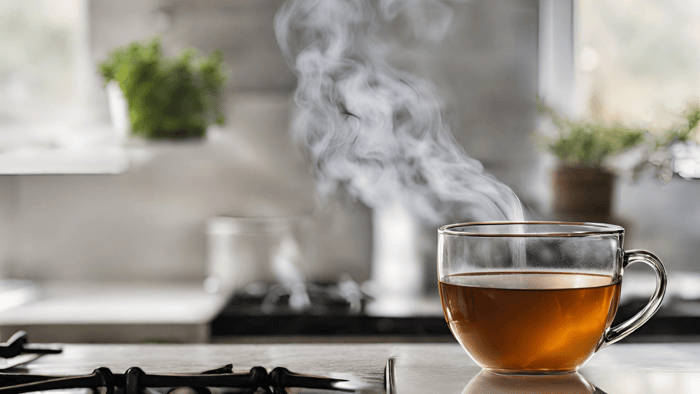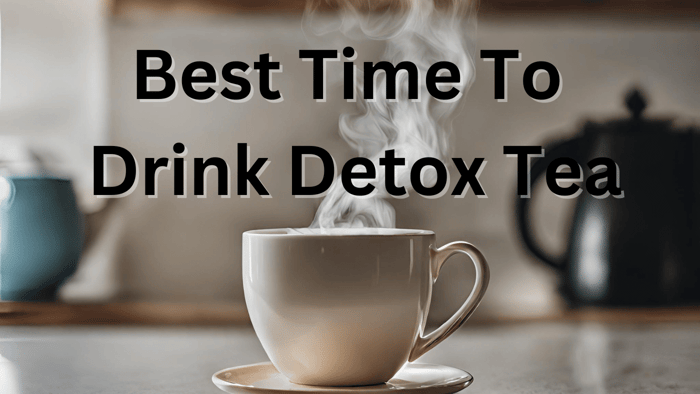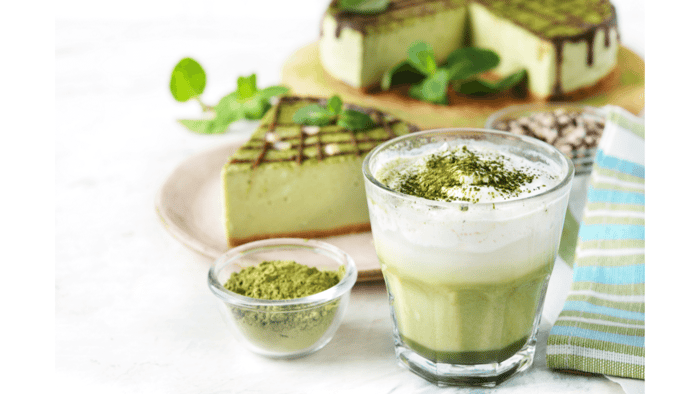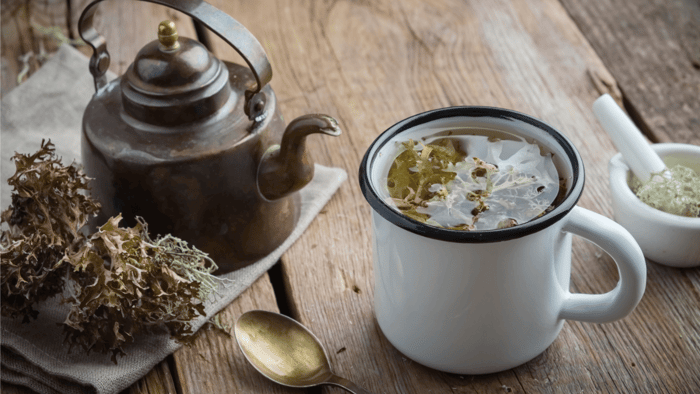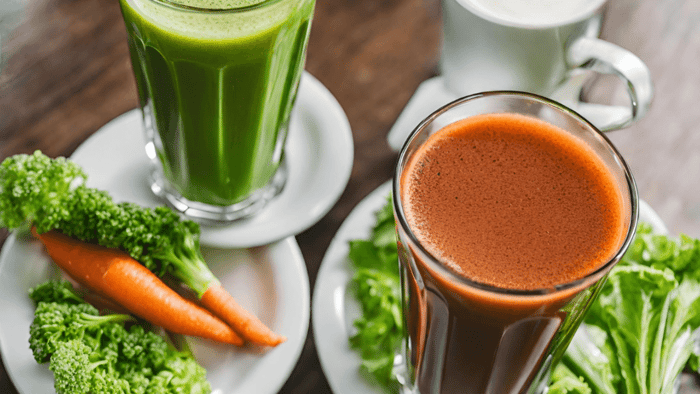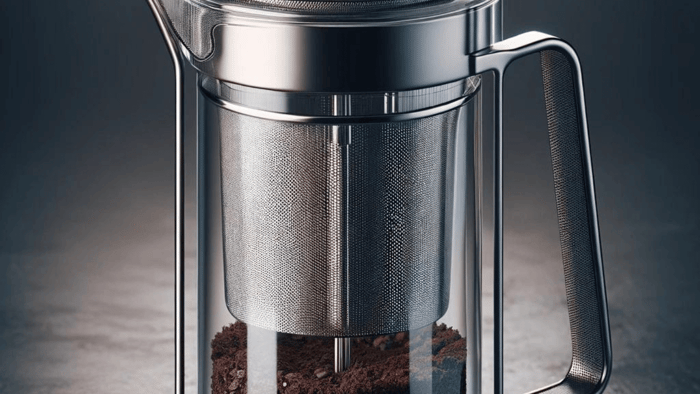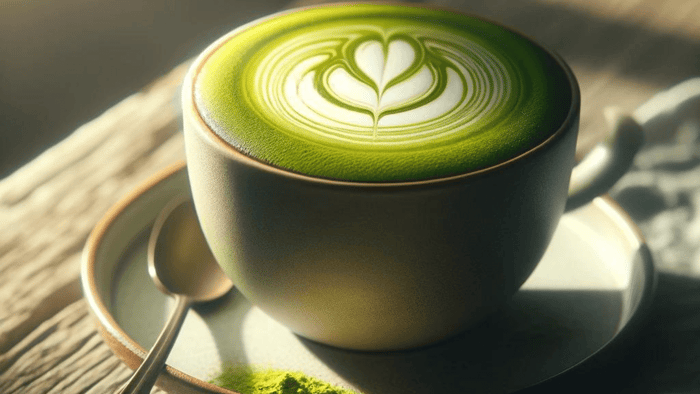Are you a tea lover with a stash of forgotten tea bags or loose-leaf tea sitting in the back of your cupboard? You may have wondered, can you drink expired tea? Tea is an age-old beverage cherished for its numerous health benefits and soothing properties. But what happens when it goes past its prime? Can you still enjoy that comforting cup without putting your health at risk? In this blog post, we’ll dive deep into the world of expired tea and explore factors affecting its quality and safety.
We’ll address the potential health risks associated with consuming expired tea, how to identify expired tea, and the factors affecting tea shelf life. We’ll also provide tips for drinking expired tea safely and discuss alternative uses for expired tea so that you can make the most of your tea stash while staying safe and enjoying the best flavors and benefits, answering the question “can you drink expired tea?” in detail.
Key Takeaways
-
Consuming expired tea can cause health risks, so it is important to opt for fresh tea and store it properly.
-
Different types of teas have varying shelf lives. Proper storage techniques are key to preserving their quality and flavor.
-
Visual inspection, smell/taste test, and trusting your instincts are essential in determining if expired tea is safe to drink or not.
Is Drinking Expired Tea Safe?
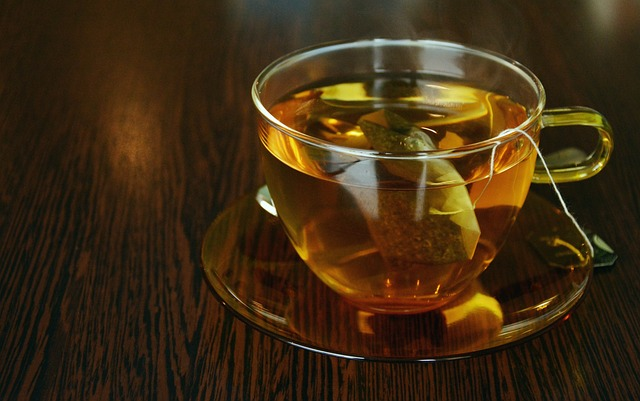
Starting off, we need to answer the pivotal question: Can you drink expired tea? The short answer is yes, expired tea is generally safe to drink, but with a few caveats. The quality of tea diminishes over time, and its flavor, aroma, and nutritional value may be reduced. More importantly, health risks can arise from mold or bacterial contamination that might occur if the tea has been stored improperly.
Understanding the factors that affect tea shelf life and recognizing signs of spoilage is fundamental for a safe and pleasant tea-drinking experience. Up next, we’ll explore:
-
The health risks of consuming expired tea
-
How the shelf life of tea can vary based on its type and storage conditions
-
The methods to determine if your tea has spoiled.
Health Risks
Drinking expired tea can lead to gastrointestinal issues and food poisoning if contaminated by harmful bacteria or mold. Herbal teas and sweetened teas are more susceptible to bacteria and mold growth. This is due to their unique composition and ingredients. Consuming tea contaminated with mold or harmful bacteria can cause symptoms such as diarrhea, nausea, and vomiting, ranging from a few hours to several days after consumption.
To circumvent these health risks, always opt for fresh tea. Correct storage and handling of tea play a significant role in forestalling bacterial and mold growth. Moving forward, we’ll delve into factors that influence tea shelf life and methods to store your tea effectively to lessen health risks.
Flavor and Nutritional Value
As tea ages, it loses its aroma, flavor, and nutritional value, which can significantly impact the overall tea-drinking experience. Fresh tea contains a variety of minerals, vitamins, and bioactive compounds that contribute to its health benefits. However, over time, these nutrients diminish, and the tea may develop off-flavors or stale notes, leading to an unsatisfactory tea-drinking experience.
Not all teas age well, and some teas may taste worse with age. For example, Japanese green tea is known for its fresh and vibrant flavor, which diminishes as it ages. To fully enjoy your tea, consume it while it’s still bursting with flavor, aroma, and nutrients. Adequate storage is key to preserving its quality.
Factors Affecting Tea Shelf Life
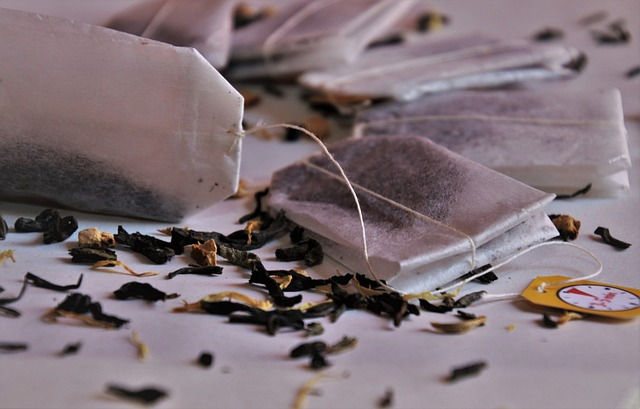
The shelf life of tea varies according to the type of tea. Proper storage methods will also affect its longevity. Proper storage can prolong the freshness and quality of tea, ensuring that you enjoy the best flavors and health benefits from your tea stash. The shelf life of different teas varies, with more oxidized teas having a longer shelf life and herbal teas having a shorter one. Thus, considering the type of tea and its shelf life is vital before deciding to consume tea that has been stored for a prolonged period.
Inadequate storage can result in stale or unpleasant-tasting tea, especially for black teas. Storing your tea in an airtight container, away from light, heat, humidity, and strong odors is fundamental to preserve its freshness and quality. Next, we will explore different types of tea, their shelf lives, and share tips on effective storage techniques.
Types of Tea and Their Shelf Life
Different teas have varying shelf lives, with more oxidized teas, like black and dark teas, lasting longer than green and herbal teas. The shelf life of most loose-leaf teas can vary from one year to more, depending on the variety and quality of the tea. Different types of teas have different shelf lives. Herbal teas, on the other hand, can remain viable for up to two years when stored correctly but tend to lose their flavor after about six months.
Tea bags also have varying shelf lives, depending on the material they are made of. Tea bags made from non-woven fabric or natural fiber are more prone to absorbing moisture. As a result, they have a shorter shelf life and tea bags expire sooner. Tea bags made from synthetic material or nylon are more resistant to moisture. This makes them have a longer shelf life than traditional tea bags.
Proper storage is crucial in maintaining the quality and freshness of your black tea, regardless of its type. To store tea effectively, follow these guidelines for tea packages.
Proper Storage Techniques
Proper storage is key to keeping your tea fresh and flavorful. Here are some tips to help you store your tea properly:
-
Use airtight containers to store your tea.
-
Keep your tea away from light, heat, humidity, and strong odors.
-
For tea bags, make sure to store them in airtight containers to prevent them from losing their flavor and aroma over time.
By following these tips, you can preserve the quality of your tea and extend its shelf life, making it even more enjoyable when you drink tea.
Avoid storing tea in the refrigerator or freezer, as this can lead to the formation of moisture inside the container, which can cause mold and bacterial growth. Instead, keep your tea in a cool, dark place, such as a pantry or cupboard. Adhering to these storage techniques can help you enjoy the optimal flavors and health benefits of your tea for an extended period.
How to Identify Expired Tea
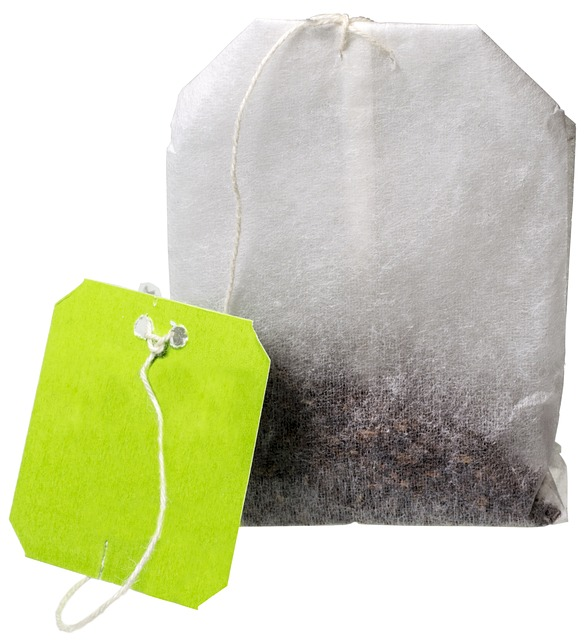
Identifying expired tea involves checking for visual signs of mold or discoloration and assessing the aroma and taste for staleness or bitterness. If your tea is past its expiration date, it’s important to thoroughly inspect it before consumption to guarantee its safety and quality.
Visual inspection, smell, and taste tests can help you determine if your tea has lost its aroma, flavor, or nutritional value, or if it has become contaminated with mold or bacteria.
Next, we will provide a deeper insight into the process of identifying expired tea through visual inspection and smell and taste tests.
Visual Inspection
Inspecting your tea visually is an essential step in determining if it has gone bad. Check for any visible signs of mold, alterations in coloration (e.g., greyish-brown leaves), or a slimy texture. Mold on tea leaves can manifest as clusters of small yellow dots, white or black lumps floating in the liquid, or accumulated on the leaves, and may emit a strong dusty and musty odor.
If you notice any of these signs during your visual inspection, it’s best to discard the tea, as it may be unsafe to consume due to mold or bacterial contamination.
Moving on, we will outline how to gauge the aroma and taste of tea expire for indications of spoilage, such as expired tea.
Smell and Taste Test
Smelling and tasting your tea can help you determine if it has lost its aroma or developed a bitter or stale flavor. The tea might be expired if its aroma and flavour are not present. It should also have a stale or musty smell, as well as a change in color. If your tea has lost its aroma or developed a bitter or stale flavor, it’s likely past its prime and should be discarded.
Trust your instincts and exercise caution when deciding whether to consume expired tea. If the safety of the tea seems dubious, it’s advisable to discard it and substitute with fresh tea for a secure and enjoyable tea-drinking experience.
Tips for Drinking Expired Tea Safely
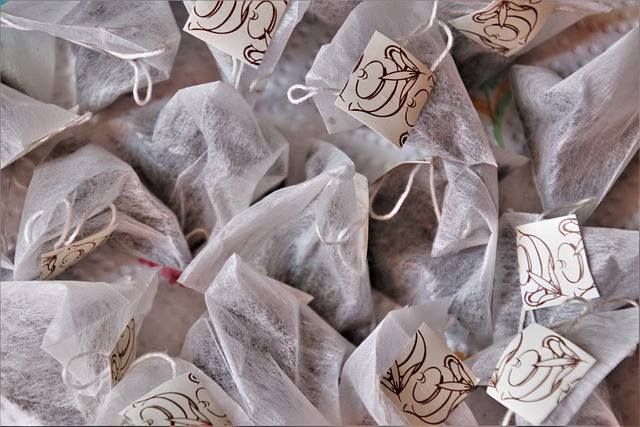
To safely consume expired tea, check for mold and bacteria, and trust your gut when deciding whether to drink it. Keeping your tea free from mold and bacterial contamination is paramount to prevent potential health risks and unpleasant flavors.
In the upcoming sections, we will provide guidance on how to check for mold and bacteria in expired tea and emphasize the importance of trusting your instincts when deciding whether to consume expired tea.
Checking for Mold and Bacteria
To ensure the safety of drinking expired tea, look for visible signs of mold or bacterial growth, such as clusters of small yellow dots, white or black lumps floating in the liquid, or accumulated on the leaves, and a strong dusty and musty odor. If you notice any of these signs, it’s best to discard the tea, as it may be unsafe to consume due to mold or bacterial contamination.
Additionally, be cautious of any changes in the aroma, appearance, or taste of the tea, as these could also indicate bacterial contamination. In the next section, we’ll discuss the importance of trusting your instincts when deciding whether to consume expired tea.
Trusting Your Instincts
Trust your instincts when deciding to drink expired tea. If the safety of the tea is questionable, it’s best to opt for caution and refrain from consuming it. Our senses are often capable of detecting signs of spoilage that may not be evident by merely examining the expiration date.
By closely observing the smell, taste, and appearance of the tea, you can make an informed decision about whether to drink it or substitute it with fresh tea. Bear in mind, it’s preferable to be safe than regretful when it comes to consuming expired tea.
Alternative Uses for Expired Tea
If you’ve discovered that your old tea is past its prime, don’t be too quick to discard it. Expired tea can be repurposed for various uses, such as gardening, cleaning, and skincare. For instance, expired tea leaves can be used as a natural fertilizer for plants, providing nutrients and helping to repel pests and insects.
So, before tossing that expired tea in the trash, consider using it in alternative ways that can still provide benefits. By repurposing expired tea, you can minimize waste and make the most of your tea stash.
Summary
In conclusion, drinking expired tea is generally safe, but it’s essential to consider the potential health risks and factors affecting the tea’s quality. By understanding the health risks associated with consuming expired tea, how tea shelf life varies depending on the type and storage conditions, and how to identify if your tea has gone bad, you can make informed decisions about whether to consume expired tea or replace it with fresh tea.
Remember to store your tea properly to maintain its freshness and quality and to trust your instincts when deciding whether to consume expired tea. With the right knowledge and precautions, you can continue to enjoy the comforting and healthful benefits of tea, even if it’s past its prime.
Frequently Asked Questions
Can you use tea bags 2 years out of date?
Tea bags can still be consumed even after their expiration date. They may not have the same flavor and aroma as they would before the expiry date, but they remain safe to drink. It is best to consume them within the two-year timeframe for optimal quality.
Can you drink 20 year old tea?
Tea does not expire, but depending on how it was stored and exposed to heat, drinking 20 year old tea may not be advisable.
How do you use expired tea bags?
Tea bags can be reused to refresh carpets, hydrate dry skin, reduce under-eye circles, soothe sunburns, dissolve greasy messes, polish wood surfaces, take a relaxing bath, and start a fire.
What are the potential health risks of consuming expired tea?
Consuming expired tea may cause gastrointestinal issues and food poisoning due to contamination by harmful bacteria or mold.
How can I store my tea to prolong its freshness and quality?
To prolong the freshness and quality of your tea, store it in an airtight container away from light, heat, humidity, and strong odors.
Do away with tedious handheld frothers and clunky shaker bottles. With the Elixir Mixer—our electric whisk bottle—crafting a diverse range of hot and cold drinks is streamlined. Fill it up, press the button, and 15 seconds later—get sipping. It will quickly become the MVP of your everyday rituals.
